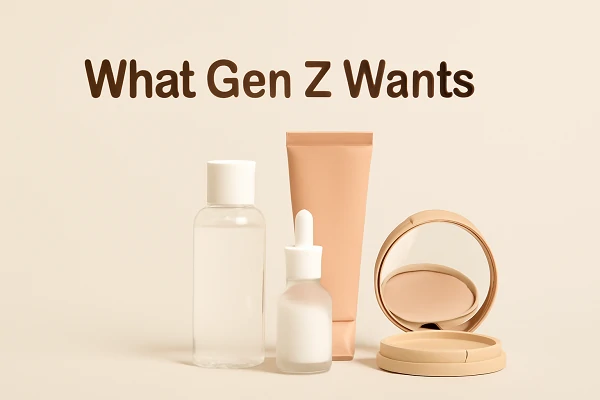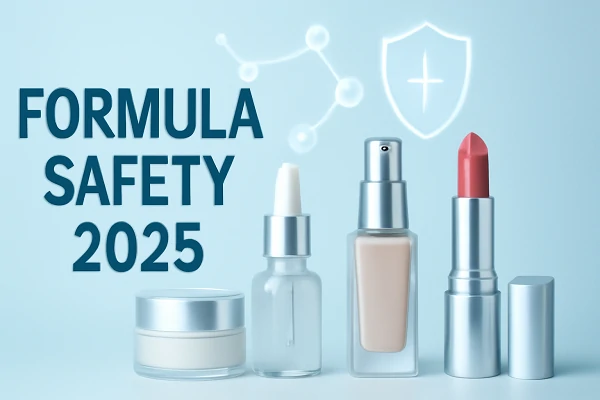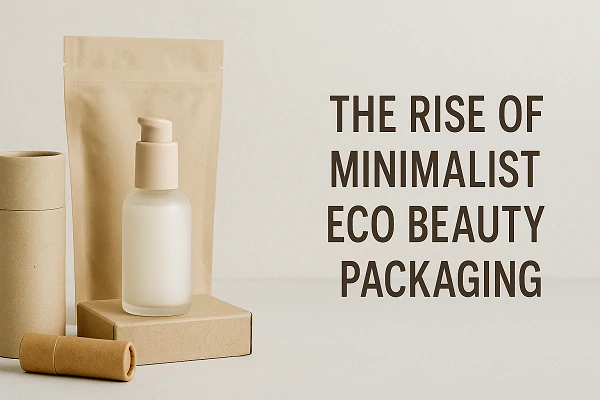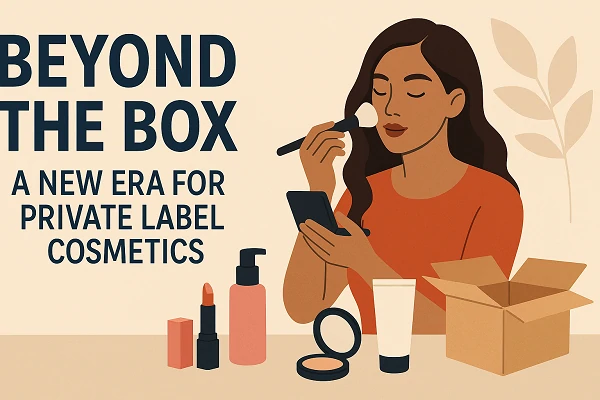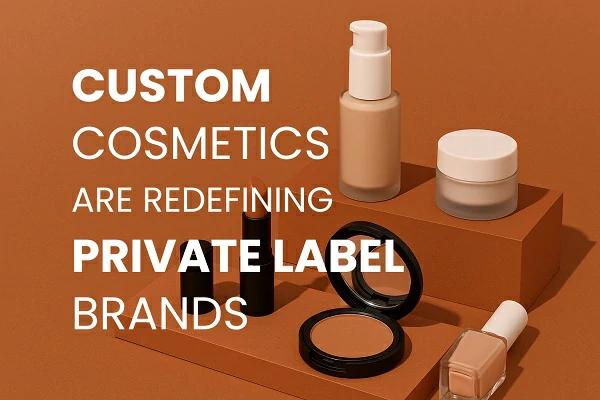
Makeup Brushes: A Guide for New Brand Owners
Share This Article With
Makeup brushes are the unsung heroes of the cosmetics industry, helping to achieve clean beauty looks.
The perfect makeup brush may make all the difference when flawlessly blending foundation, producing a striking smoky eye, or accurately applying lipstick.
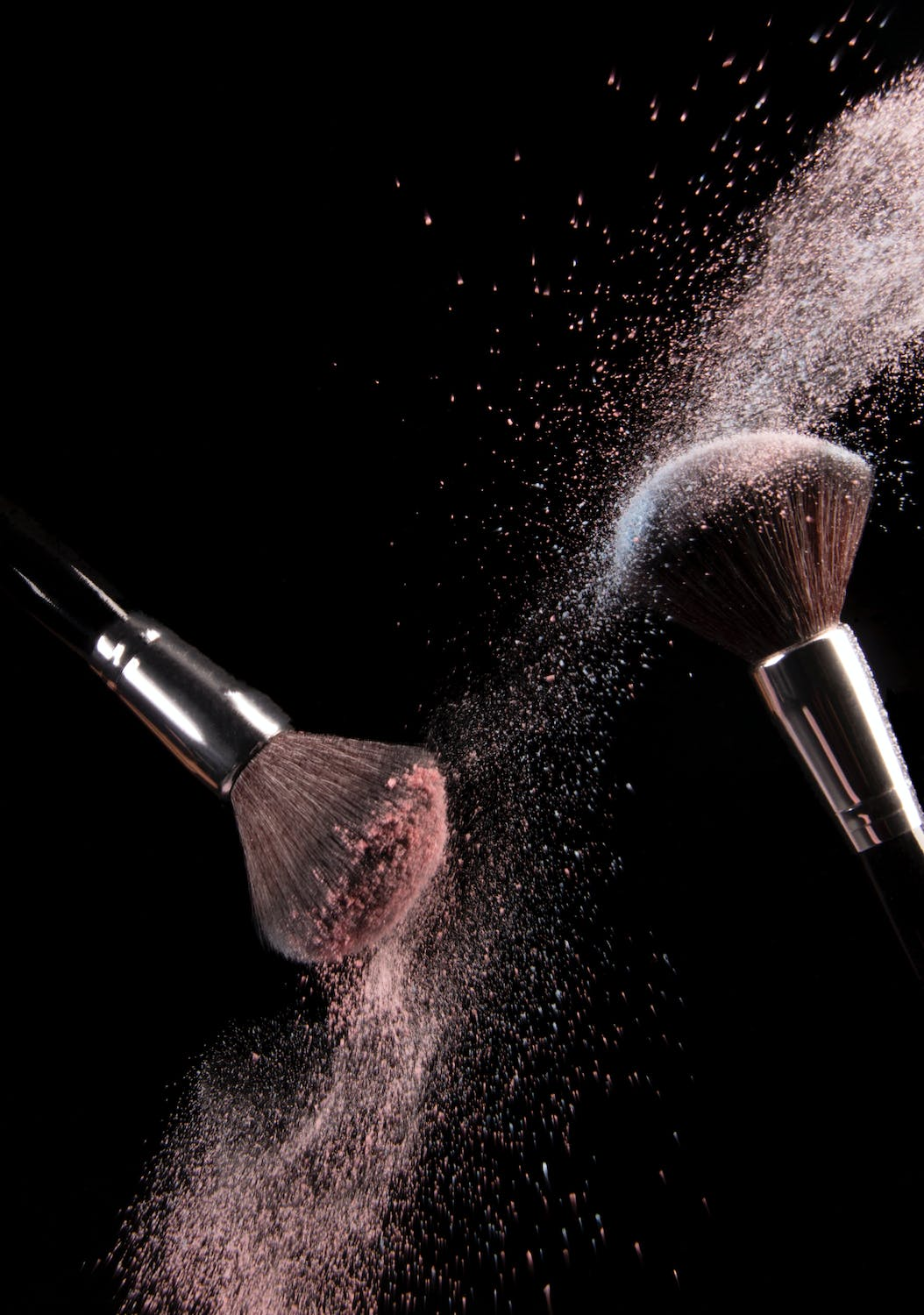
Understanding the world of makeup brushes is critical if you’re a new company owner entering the fascinating makeup brush industry.
Did you know that makeup brushes have been used for centuries and that proof of their use may be found in ancient civilizations? The makeup brush has grown from ancient Egypt to modern-day beauty routines.
The information below covers everything new brand owners need to know about these makeup tools and how to pick the best makeup brushes for their consumers.
Different Types of Makeup Brushes
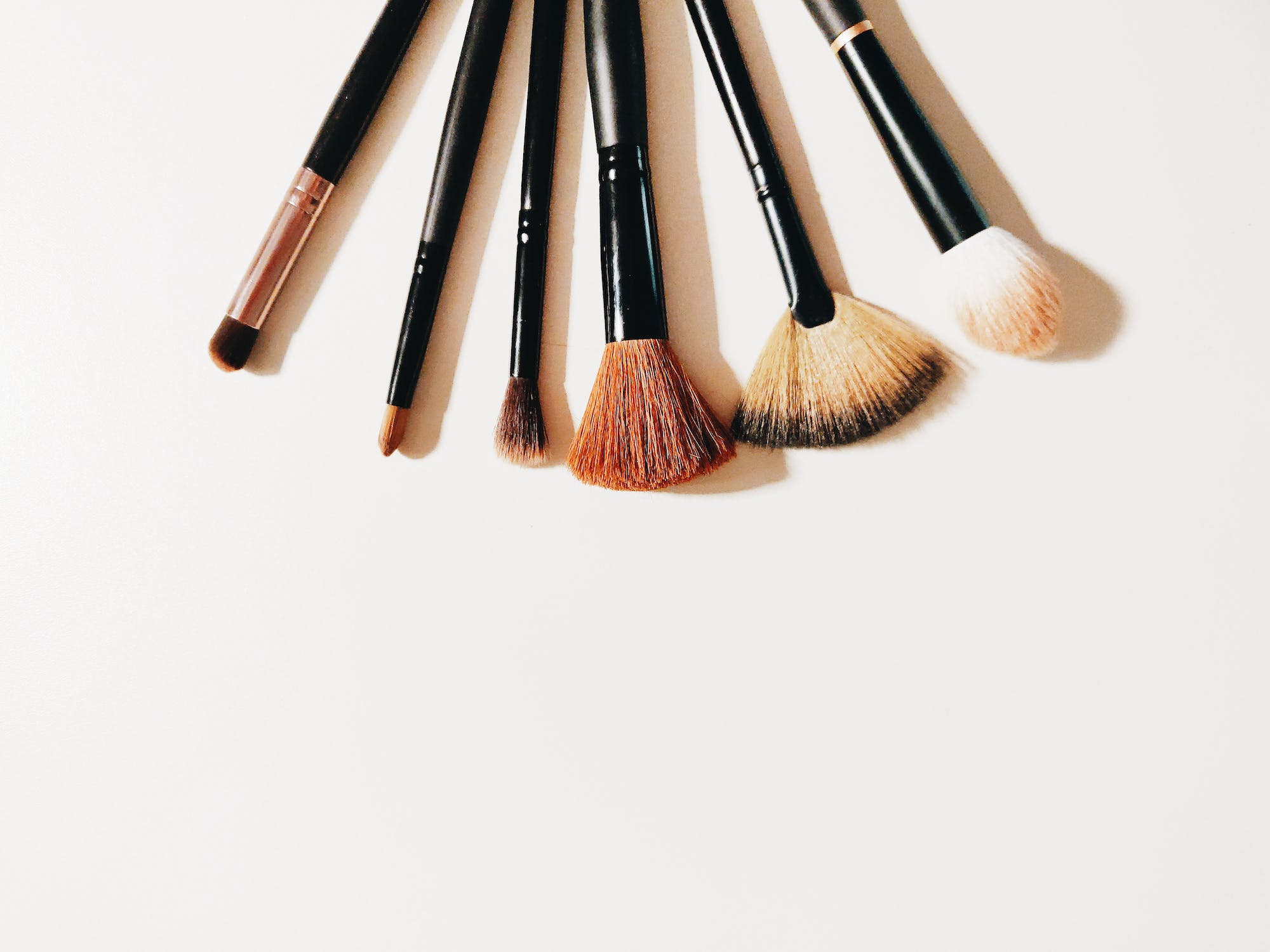
Brands specializing in providing high-quality makeup brushes to customers should consider refining their product line. After all, many types of makeup brushes serve various purposes and are used on various parts of the face. However, all makeup brushes fall under one of the following three categories.
Face Brushes
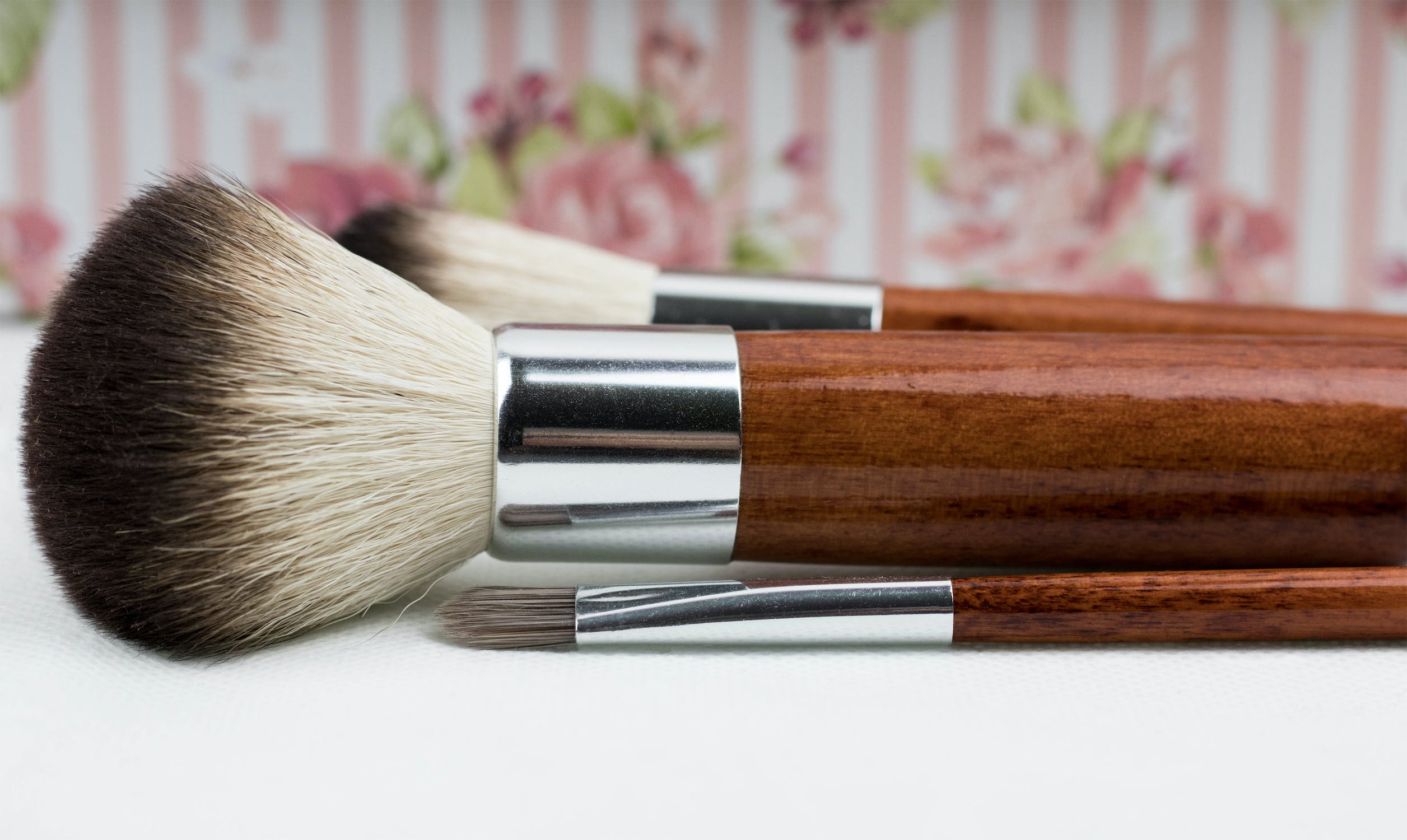
Face brushes are the brushes that consumers use to apply makeup products to larger parts of the face, such as the forehead, cheeks, below the eyes, chin, and nose. Face brushes usually have more and concentrated bristles and a larger surface to cover more areas in a few strokes. Examples of face brushes include:
Powder Brush
A powder brush helps to gently and loosely dust powder on the face to set the rest of the makeup. Powder brushes are thick and full-fibered.
Foundation Brush
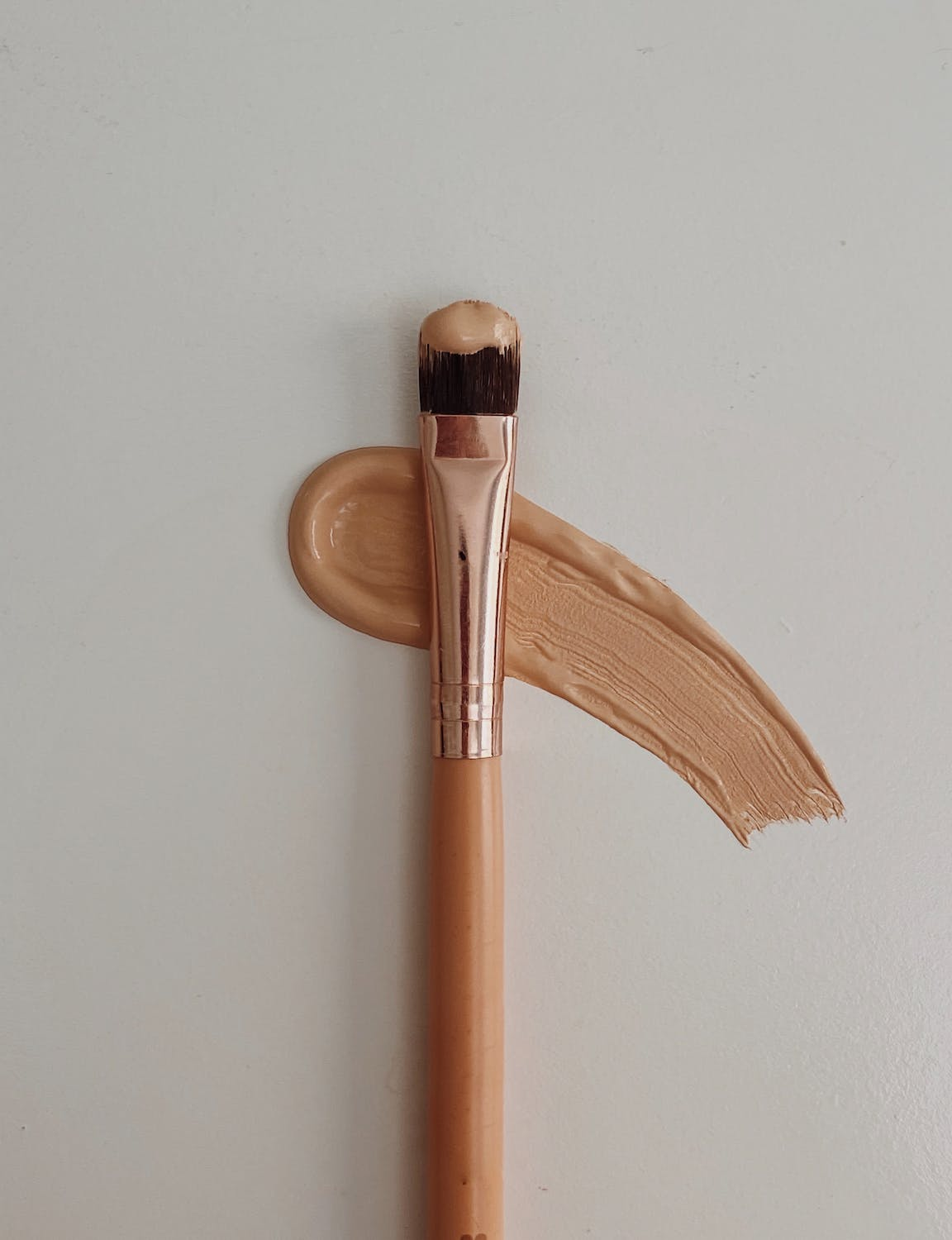
Consumers, makeup artists, and other cosmetic users keep foundation brushes for the even application of foundations and, sometimes, primer. There are different types of foundation brushes, including the following:
- Kabuki foundation brush for multifunctional purposes.
- Flat foundation brush for an artistic-like technique for streak-free precision.
- Buffing foundation brush for buffing product into the skin.
- Oval foundation brush for blending liquid foundation.
- Angled foundation brush for applying liquid products, creams, bronzer, and blush.
Stippling Brushes
Stippling brushes help create an airbrushed flawless look. Individuals confuse stippling brushes with Kabuki brushes. However, stippling brushes have fibers of two distinct lengths.
Blush Brush
As the name suggests, it is used in the application of blush.
Eye Brushes
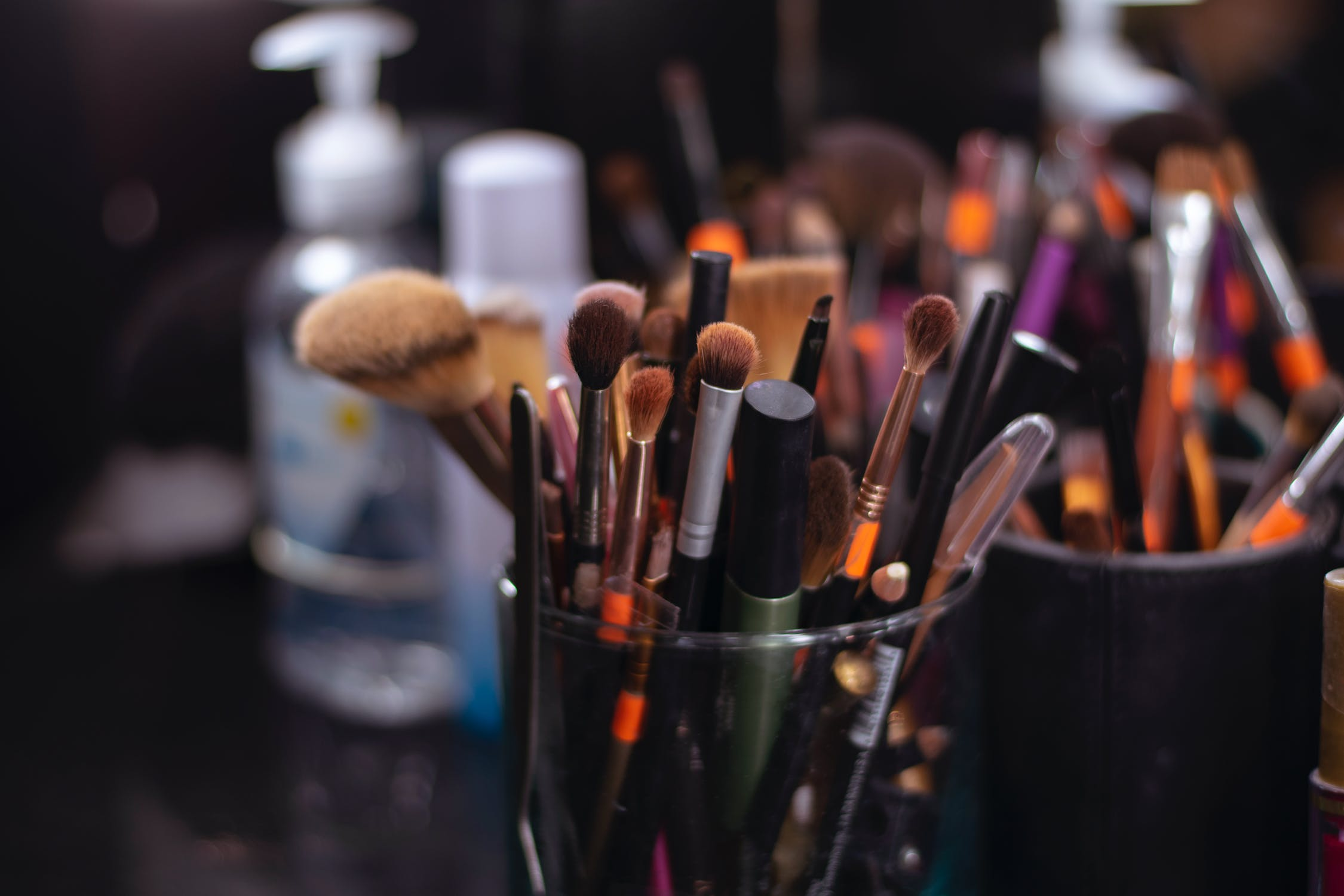
Eye brushes are specifically used on eye parts such as the eyebrows, eyelids, eyelashes, and eye lines. They are small with compressed bristles to help create a defined shape to achieve specific looks. The following are the types of eye brushes:
Eyeshadow Brush
There are different types of eyeshadow brushes, but they are for the application of eyeshadow to create depth, details, and contrast.
Eyeliner Brush
Eyeliner brushes add eyeliner to the eye for an artistic and eye-catching look like the cat eye.
Eyebrow Brush
It is a double-sided brush that makeup enthusiasts use for styling eyebrows.
Lip Brushes
A lip brush is a tool used in the application of lipstick or lipgloss. The ideal lip brush is usually long, thin, and pencil-like, with soft bristles that taper at the end.
Common Brush Materials and Their Benefits
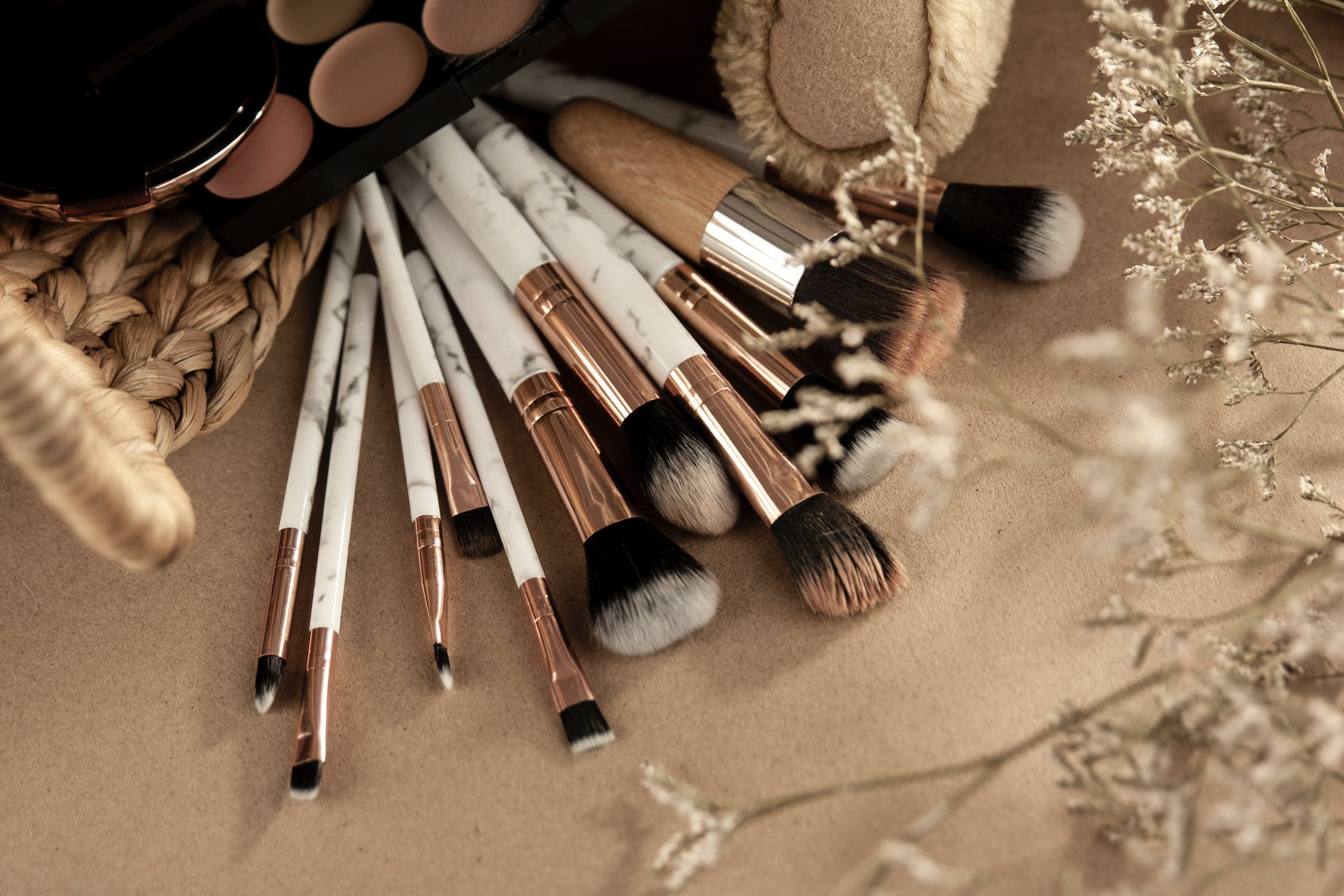
Consumers and brand owners are concerned about the bristles of makeup brushes. The texture, length, and type of material used in bristles could affect their usability. Picking the right materials is, therefore, a crucial part. The following are the types of makeup brush materials:
Natural Bristles
Manufacturers make these makeup brushes from animal hair, such as goats and squirrels. Therefore, they are often more expensive than synthetic brushes.
Natural bristle makeup brushes have cuticles that aid in lifting and absorbing powdery pigments. Natural beauty brushes are better for creating a natural non-blotchy look.
While natural makeup brushes are made from animal hair, some are cruelty-free makeup brushes. Natural cruelty-free makeup brushes are made with cruelty-free methods.
Natural makeup brushes are best for powdered formulations such as powder foundation.
Synthetic Bristles
Synthetic bristles come from artificial materials such as nylon, taklon, and polyester fibers.
A synthetic makeup brush may not have a soft feel compared to a natural one. However, they are more affordable because manufacturers use readily available materials.
Synthetic bristles naturally gravitate towards each other for precise, smooth, streak-free makeup application. Synthetic brushes are best for liquid foundation, tinted moisturizer, cream blush, gel eyeliner, and other liquid makeup products.
Choosing the Ideal Makeup Brushes for Your Brand
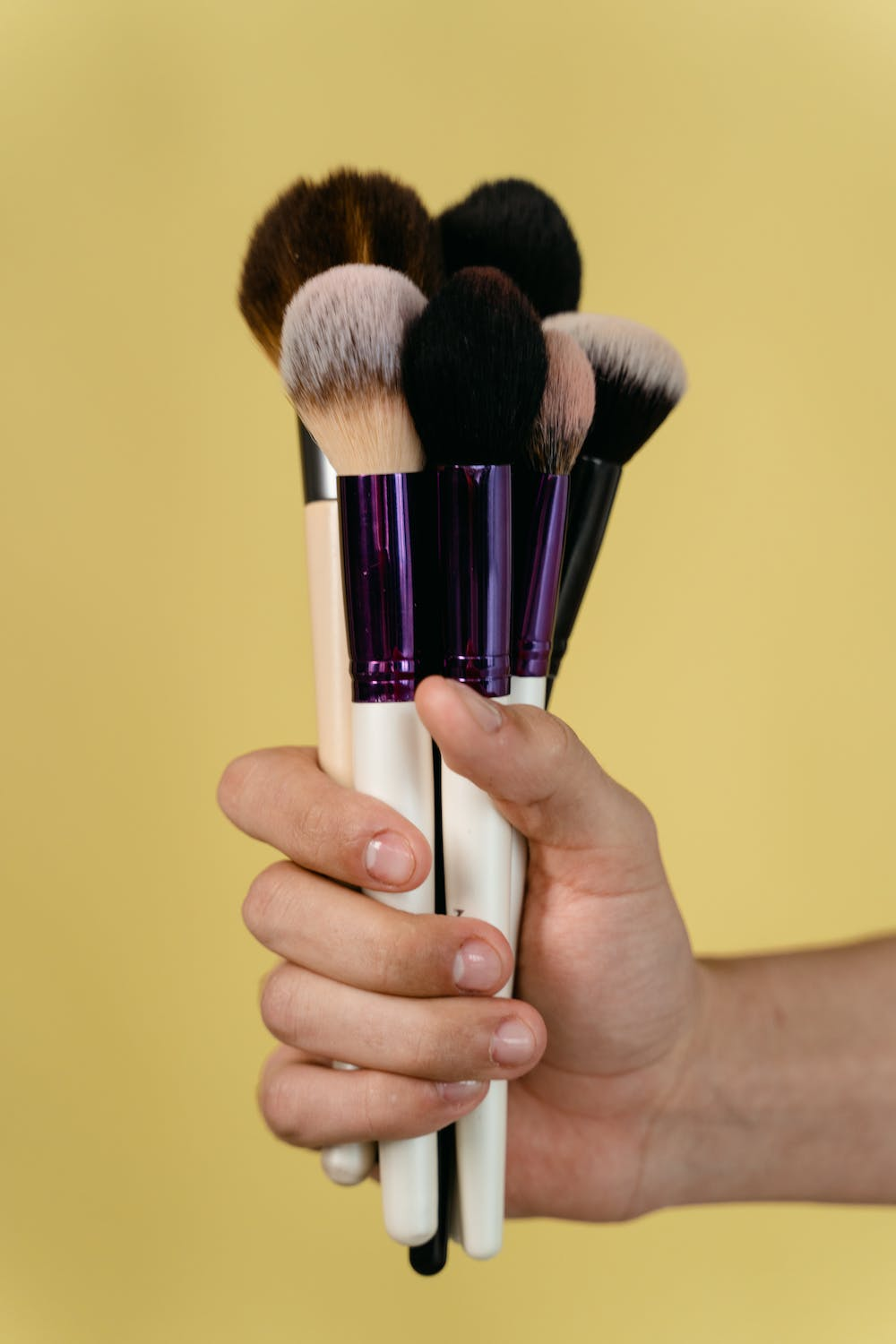
Choosing the best makeup brushes for the brand is a critical step all new brand owners should pass through.
The right products should cater to the consumer’s needs while representing the brand image and getting the right attention.
In addition, makeup brushes should complement other products in the line, such as liquid foundation, face powder, eyeliner, eye shadow, eyelash curler, and other products.
Here is a quick guide on choosing the best makeup brushes for the brand.
Identifying Your Brand’s Target Market and Niche
Understanding the target market and the niche is critical when choosing the proper makeup brushes.
Consider the target audience’s tastes, interests, and demographics. For example, a professional makeup artist may not share the same taste as an influencer or eco-conscious consumer.
In the competitive cosmetics sector, aligning your brush offerings with your brand’s identity and target market will help differentiate your products.
Considering Quality and Performance Factors
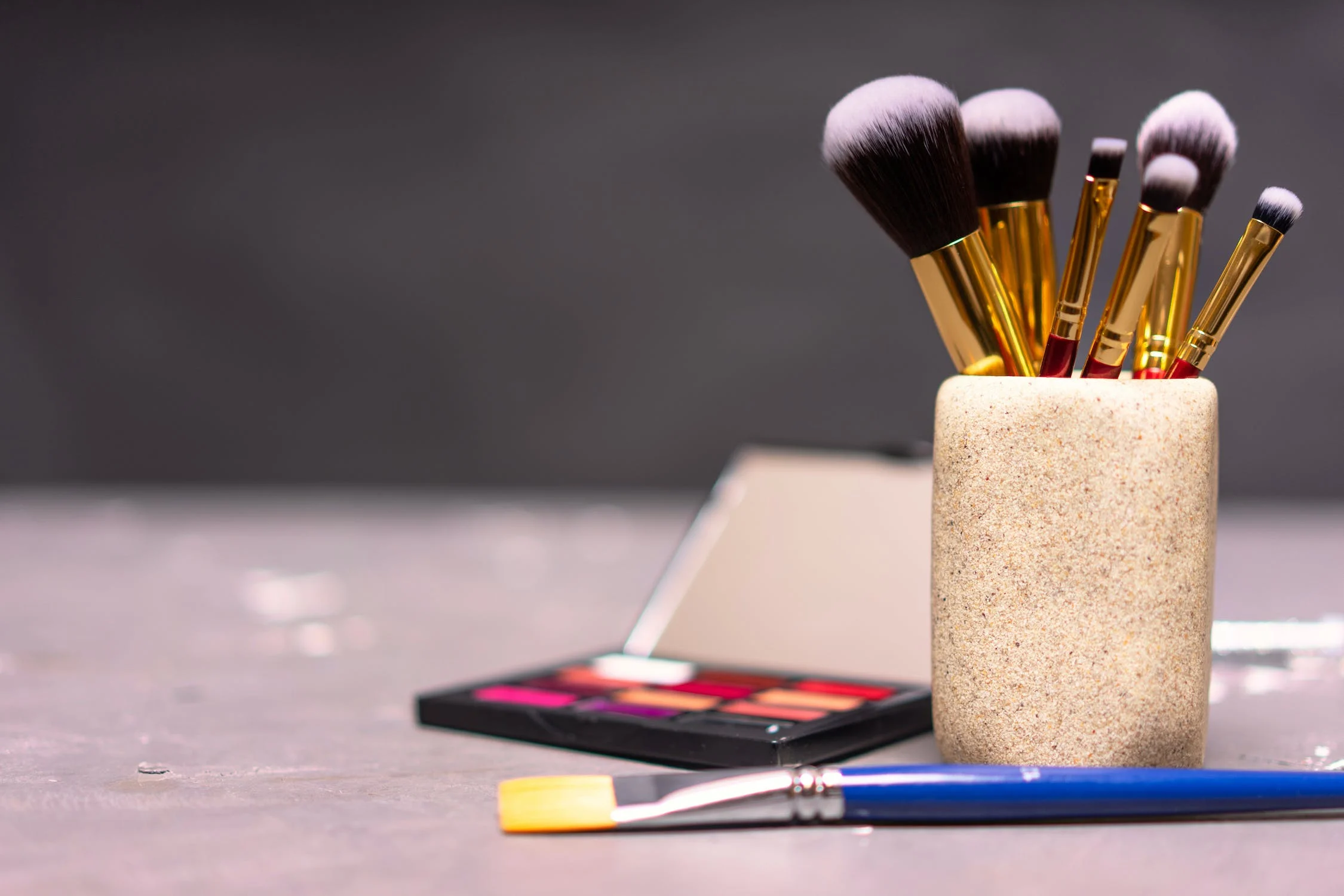
Bristle density and softness
The quantity of bristles packed into the brush head is the bristle density. Dense brushes provide more coverage and a higher color payoff, whereas less dense brushes provide more flexibility and a smooth finish.
Softness is vital for pleasant and smooth application. Soft bristles also prevent skin irritation or pain. Choose high-quality, gentle-yet-effective synthetic or natural bristles.
Handle durability and ergonomics
Sturdy and professional quality brush handles are essential for longevity and user satisfaction. Consider ergonomic designs that provide a comfortable grip and ease of control, especially during the precise application, such as blending, applying concealer, and using cream contour.
Brush construction and longevity
To ensure durability, look for well-made brushes with secure ferrules (the metal element that holds the bristles).
In addition, brand owners should consider less thought about factors such as how consumers will clean makeup brushes and whether it will affect durability.
To supply customers with dependable and long-lasting tools, consider shedding, bristle retention, and brush longevity.
Budget Considerations And Sourcing Options
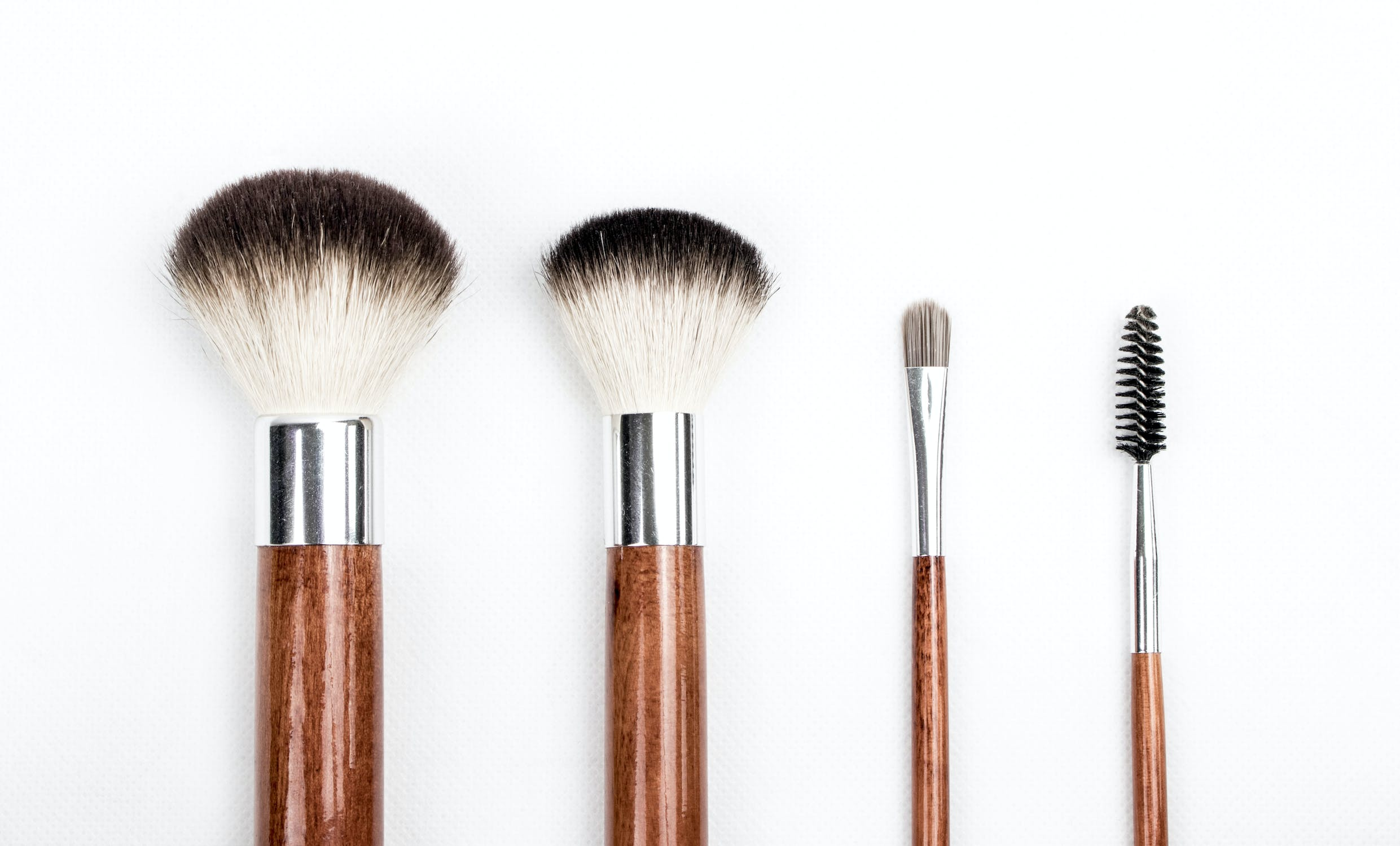
Custom Manufacturing
Custom manufacturing enables the manufacture of one-of-a-kind professional quality brushes tailored to the brand’s image.
It gives brand owners complete creative control over their design, materials, and branding. Thus, they can meet consumer needs more efficiently.
Because this sourcing option demands working directly with manufacturers to make specific designs for your brand, it may demand a higher initial cost.
Private Label Suppliers
Private label vendors provide pre-designed brushes that may be customized with a brand’s logo and packaging.
The private label brushes upside is that the brand may choose from existing brush patterns and materials and can thus go for niche specifics such as cruelty-free, vegan, and other brushes.
In addition, the approach is often more cost-effective and allows for a faster product launch.
In Conclusion
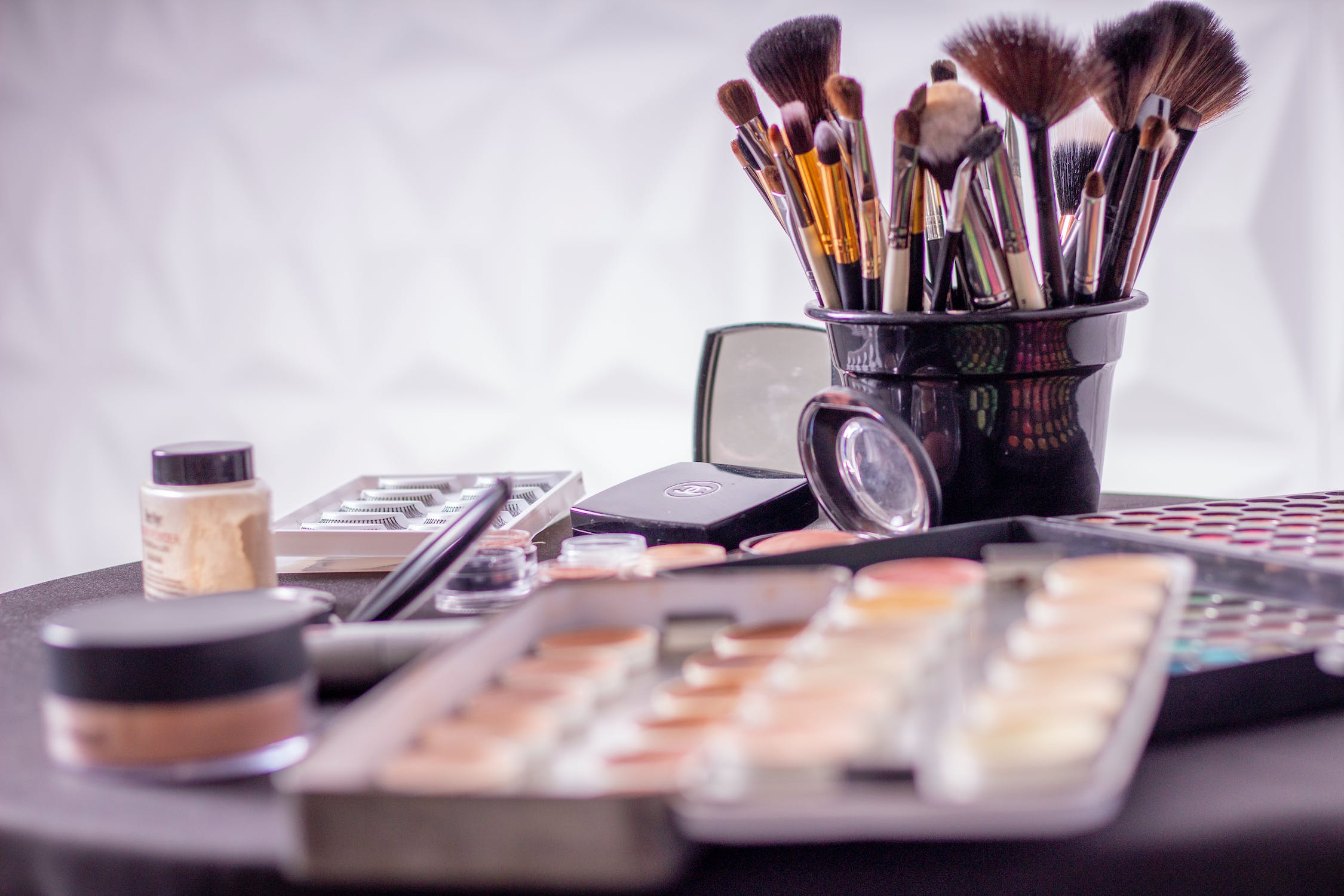
Makeup brushes are key tools in the cosmetics industry, and new brand owners must understand them to serve their target audience effectively.
Brand owners may select ideal makeup brushes for their clients by considering criteria such as target market, quality, and budget.
Sourcing choices are available to fulfill brand needs through custom manufacturing or private label vendors. Purchasing high-quality brushes improves a brand’s reputation and ensures consumer satisfaction.
With the right makeup brushes, new brand owners may establish their mark in the competitive cosmetics market and provide their clients with unique beauty tools.
Stay Connected
Choose your favourite social media channel to stay up to date with Aurora Global Brands and its activities
© 2025 Aurora Formula Co., Ltd


